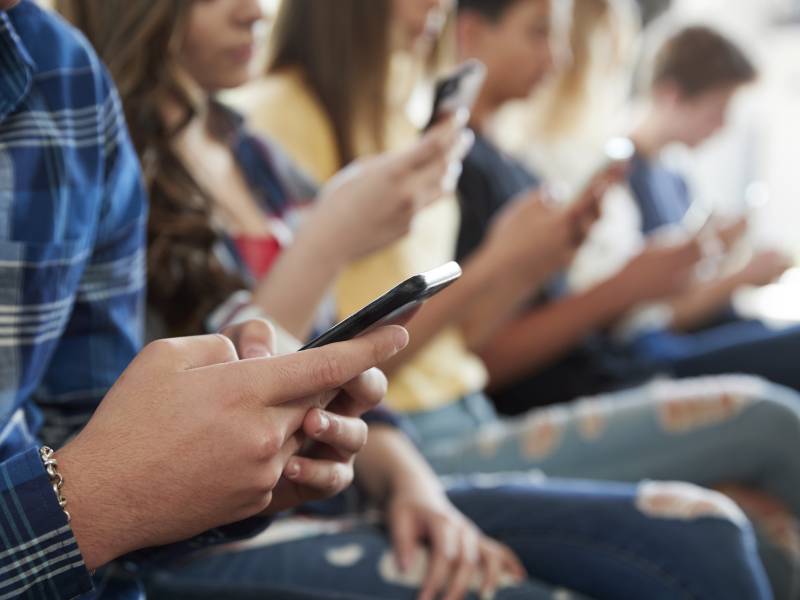“The cellphones have to be removed from their persons, and they have to be stored somewhere away from that individual,” he said. “That’s going to take time. It’s going to take expense, and it’s going to take enforcement.”
Bloomfield said some schools use technology-blocking software, but that raises questions about how students can use their phones in emergencies.
He also said the law’s lack of specific enforcement measures could lead to racial disparities in how the policies — or penalties — are applied.
“It’s easy for states to require districts to have policies, but they’re really offloading the job to school districts, and then obviously to schools to enforce those policies,” he said.
Indiana Rep. Julie McGuire, a Republican and one of the sponsors of the bill in the legislature, said some teachers now don’t have the power to confiscate phones even when they create a distraction. She said the new law will reduce problematic behavior around social media and teach students to replace screen time with more face-to-face communication.
“While we cannot control the amount of time students spend on social media outside school hours, we can provide reprieve during the seven hours per day that should be focused on learning,” she said.
Democratic Rep. Matt Pierce opposed the bill, questioning the need for mandating what he said should be obvious.
“From the policy perspective, it makes sense,” he said. “The other part of me is like, really? We need a bill so a school corporation can have a common-sense policy telling its kids not to use these devices? I was going to vote against this bill just because I don’t think it’s needed, but now I’ve got somebody telling me that you’ve got a school somewhere that’s telling some teacher they can’t just take the darn phone away. I don’t get it.”
The bill was signed by Indiana’s Republican Gov. Eric Holcomb in early March. and the law takes effect July 1.
Some districts, like Indianapolis Public Schools, will not be largely affected by the new law because they already have similar policies in place. Other districts vary.
At Westfield Washington School District, communications director Joshua Andrews said high school students there can only have their phones at lunch and between classes. However, middle school students cannot use their phones at all during the school day.
“When you change something that big, it kind of makes people recoil a little bit. But, there’s been little to no problems with it since we’ve rolled it out,” he said.
Other districts are still in the process of developing policies.
Terry Terhune, superintendent at Greenwood Community School Corp., said students at his schools generally aren’t supposed to have their phones out during class unless they have a teacher’s permission. However, the rules vary by grade level.
“One of my goals is to try to meet with some of our neighboring school districts and see kind of where everybody lands on that,” he said. “Within our county, Johnson County, I would like to try to be consistent with other districts. But again, everybody’s going to have their own opinion on those things.”
Kirsten Adair covers education for Indiana Public Broadcasting.
Copyright 2024 IPB News. To see more, visit
IPB News.
9(MDAxOTAwOTE4MDEyMTkxMDAzNjczZDljZA004))



9(MDAxOTAwOTE4MDEyMTkxMDAzNjczZDljZA004))